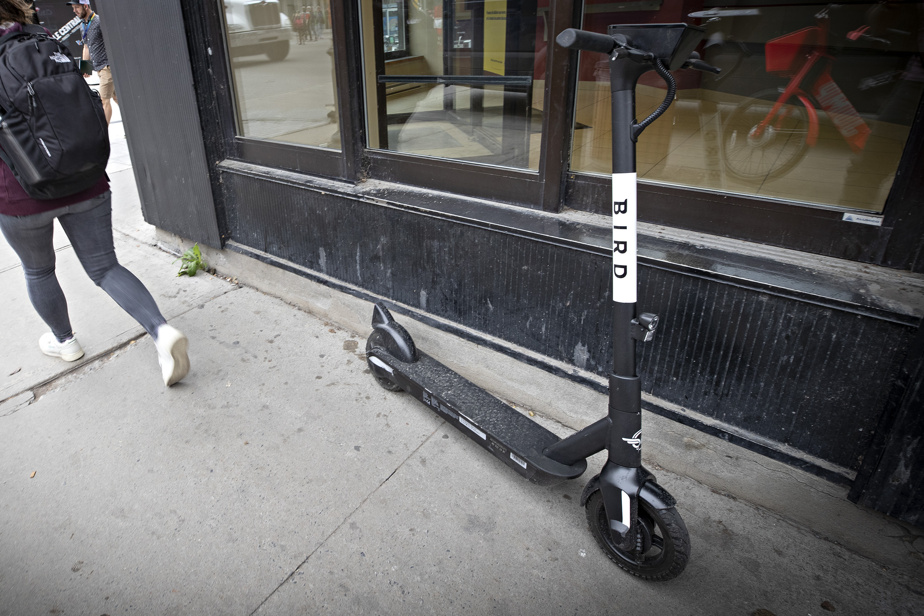(New York) The American self-service electric scooter rental company Bird announced on Wednesday that it had filed for bankruptcy, a new sign of the slowdown in a market which had experienced meteoric growth.
The Miami company indicated that this placement in safeguard procedure did not concern the Canadian and European subsidiaries, which will continue to operate normally.
Concretely, Bird Global, the parent company, will sell itself to its creditors, as well as other American subsidiaries, but nevertheless intends to continue its activity, according to a press release.
Asked by AFP about the nature of the assets that the group plans to sell, Bird did not immediately respond.
The company has already reached an agreement with its creditors and secured a commitment from MidCap Financial, a subsidiary of private equity giant Apollo Global Management, to inject $25 million in new money.
Bird is part of a generation of open-access electric scooter network operators that entered the market in the late 2010s.
This offer was, for a time, seen as a significant element in the development of new uses for travel in the city.
But several municipalities, scalded by the increase in cases of parking outside reserved zones and traffic accidents, have put the kibosh on it.
Paris, Montreal, Las Vegas and New Orleans banned them after having, for a time, authorized them, joining Barcelona, Toronto or New York, which never gave the green light.
Many other cities have implemented restrictions, sometimes draconian, reducing the number of vehicles in circulation, the maximum speed or prohibiting using sidewalks.
Due to some of these restrictions, but also the fierce competition between many new operators, Bird chose, in October 2022, to voluntarily withdraw from several markets, notably Germany, Sweden and Norway.
In February, Bird also decided to leave San Francisco.
The company says it still has a presence in about 350 cities around the world.
Once valued at $2.3 billion, Bird was listed on the stock market in November 2021.
But its stock value quickly collapsed, falling below $15 million, leading to its delisting in September.
